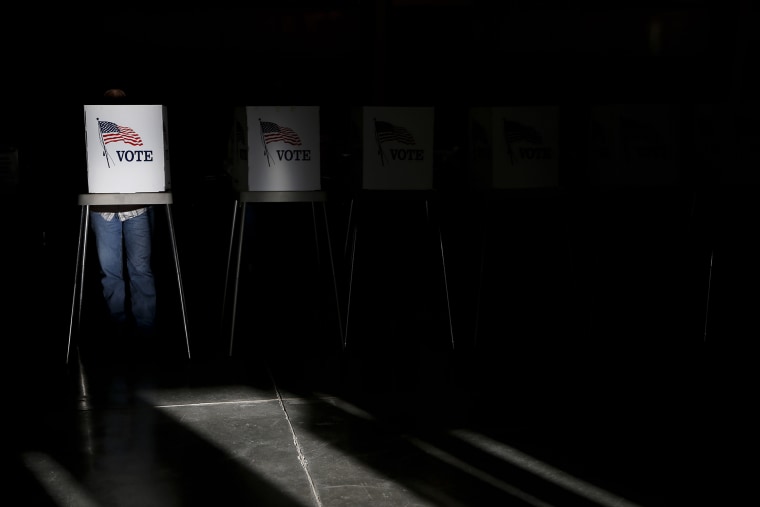Former Ohio Secretary of State Ken Blackwell (R), a member of Donald Trump's ridiculous "voter integrity" commission, appeared on MSNBC yesterday and had a rather unpleasant exchange with Katy Tur. After he eventually let Tur ask her first question about the absence of evidence of widespread voter fraud, Blackwell turned to a familiar talking point.
"Let me say that the Pew Foundation found that we have corrupted voter registration files, which means that we have folks who have either registered to vote in two states or we have folks who are still registered to vote who happen to be dead and you create vulnerabilities for the integrity of the system."
If you watch the clip, Katy Tur reminded viewers of the relevant detail that Blackwell chose not to mention: the Pew study didn't point to any evidence of voter fraud. He was asked about fraud, but Blackwell's "proof" was unrelated to the question.
For voter-suppression advocates, this Pew Center report has become a life-preserver of sorts. Whenever Donald Trump has been asked to substantiate some of his more outlandish voter-fraud claims, he insists that Pew provided iron-clad evidence that backs him up. Kris Kobach has also repeatedly cited the Pew research as proof.
Perhaps they didn't understand what they read -- because the report plainly doesn't say what they think it says.
As we've discussed before, the Pew Center's research pointed to errors and inefficiencies in the nation's voter-registration system, which the organization concluded is in need of a systemic upgrade. It found at the time, for example, that roughly 1.8 million deceased people were still on voter registration rolls nationwide and should be removed.
But that's not evidence of fraud. Sometimes, Americans register to vote, then die, then remain on voter lists because the rolls aren't updated as efficiently as they should be. The Pew Center didn't point to any evidence of dead voters casting ballots, only dead people who haven't been removed from the system.
In other words, Trump and his commission members are clinging to a Pew report that offers no proof to substantiate voter-fraud allegations. Literally, none.
What about Blackwell's contention yesterday about people who end up being registered to vote in more than one state? That happens, too -- it's apparently quite common among aides in Trump's White House -- but it's not illegal. Sometimes, a person registers to vote in one state, later move to another, and then registers again. So long as they're not casting ballots in more than one state, there's no great controversy here, either.
I realize Trump World is going to a lot of trouble because the president came in second when Americans were given a choice between candidates, this discussion would be a lot less frustrating if Republicans simply conceded they have no credible evidence to bolster their allegations.
